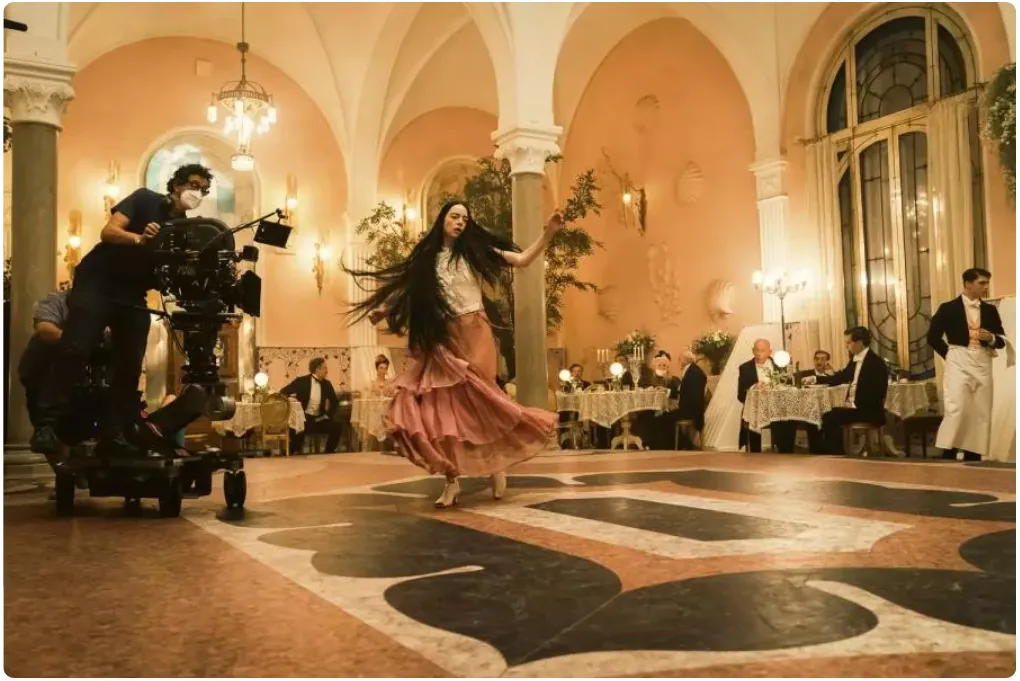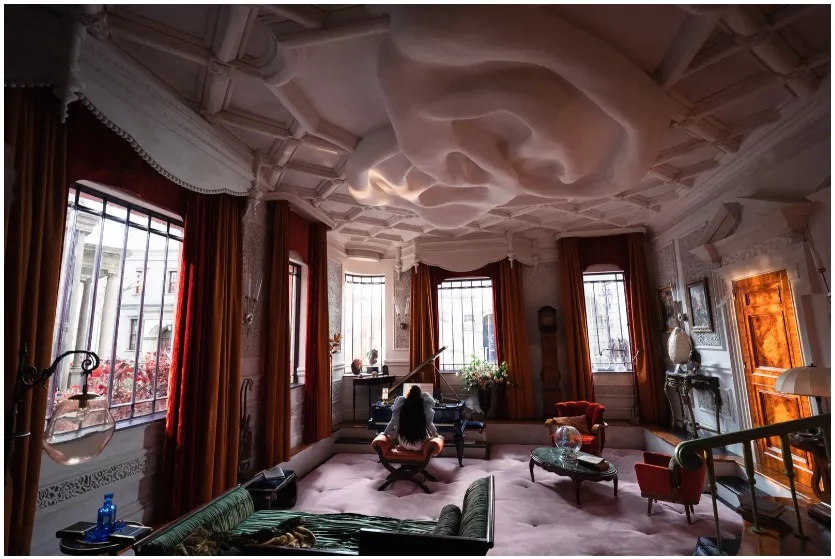Este post podría titularse de cómo vas a al cine con poca información y algunos prejuicios para acabar siendo el resultado de ser testigo algo fresco, novedoso y espectacular.
El Zeitgeist del momento es el de la reivindicación de la mujer, su contribución a la sociedad, su empoderamiento (palabra que me resulta algo cargante), y esta película puede ser su obra cumbre. Todos estos temas se han tratado de diferentes maneras, unas un poco cutres (como esa escena de todas las chicas en la batalla final de Endgame, "girl power"), otras más sofisticadas, pero demasiado obvias (Barbie), pero ninguna de una forma tan inteligente como en esta película. Veamos por qué.

Pobres criaturas es una película fascinante, como suele hacerlas Lanthimos, tema recurrente en su cine, un personaje prisionero en busca de libertad, una estética steampunk, a veces muy colorida, a veces en blanco y negro según el mensaje que se quiere transmitir en cada escena y una música desconcertante que le da a todo un tono cómico y surrealista.

Como protagonista total tenemos a una Emma Stone extraordinaria en un papel que, si bien es un caramelo para toda actriz, no deja de ser arriesgado para una estrella y eso se le agradece.
El riesgo que asume Emma es considerable. Debe interpretar la evolución del cerebro de un recién nacido en un cuerpo adulto hasta el de una mujer inteligente e independiente. Esto en la parte actoral. En la parte visual, Emma no nos oculta nada. Hay sexo y desnudos, mucho. Esto, en el cine de ahora y buena parte de la sociedad, que se ha vuelto tan mojigata se agradece. Y aquí Emma se la juega, pero gana.
Las escenas no son gratuitas, sino que son necesarias en el relato. El cual si una mujer es realmente independiente no debe pedir permiso a nadie ni cumplir con las convenciones sociales para hacer con su cuerpo lo que le plazca.
Aquí está la clave de la historia, el de la libertad personal.

La clave feminista del relato tiene dos vertientes en mi opinión.
Uno el de la evolución de Bella Baxter, que pasa por las diferentes etapas desde un bebé al de una mujer adulta, en busca de su libertad personal, luchando por las trabas que la sociedad le intenta imponer (si ella quiere ser prostituta quienes son los demás para impedírselo?, algo que muchas feministas negarían también). La otra vertiente es su relación con los hombres: un padre (su creador), controlador y medio loco, un novio bueno pero pusilánime con matrimonio concertado, un amante tóxico y el de un marido violento y cruel. Aquí nos señala que Bella Baxter siempre es propiedad de alguien y toda la película es lo que se llama el viaje del héroe, un proceso por el cual nuestro protagonista evoluciona a través de diferentes experiencias, a veces traumáticas, hasta lograr ser dueña de su propio destino. Una alegoría de la situación de la mujer en la sociedad a través de la historia.

La inteligencia de la película radica en que acabas convencido, empatizas con la protagonista, deseas que se cumpla su deseo, el de la búsqueda de su felicidad y acabas odiando a todo aquel que se interponga en su camino.
En fin, esta película merece la pena verla varias veces porque tiene muchos detalles que en un primer visionado se pueden perder. La música, esas estridencias que dan el tono cómico a la escena, el color, el maquillaje, los diálogos. Me parece toda una absoluta maravilla
Un candidato firme en los Oscars, si es que estos premios significan algo para el buen cine
English Translation
This post could be titled about how you go to the movies with little information and some prejudices to end up being the result of witnessing something fresh, new and spectacular.
The Zeitgeist of the moment is that of the vindication of women, their contribution to society, their empowerment (a word that I find somewhat burdensome), and this film could be its crowning work. All of these themes have been treated in different ways, some a little cheesy (like that scene with all the girls in the final battle of Endgame, "girl power"), others more sophisticated, but too obvious (Barbie), but none of them in a as intelligently as in this movie. Let's see why.
Poor Things is a fascinating film, as Lanthimos usually makes them, a recurring theme in his films, a prisoner character in search of freedom, a steampunk aesthetic, sometimes very colorful, sometimes in black and white depending on the message that is wanted to be conveyed in each scene and disconcerting music that gives everything a comical and surreal tone.
As the total protagonist we have an extraordinary Emma Stone in a role that, although it is a candy for every actress, is still risky for a star and we appreciate that.
The risk Emma takes is considerable. You must interpret the evolution of the brain of a newborn in an adult body to that of an intelligent and independent woman. This in the acting part. In the visual part, Emma does not hide anything from us. There is sex and nudity, a lot. This, in today's cinema and a good part of society, which has become so prudish, is appreciated. And here Emma takes a gamble, but wins.
The scenes are not gratuitous, but are necessary in the story. If a woman is truly independent, she should not ask anyone's permission or comply with social conventions to do whatever she pleases with her body.
Here is the key to the story, that of personal freedom.
The feminist key to the story has two aspects in my opinion.
One is the evolution of Bella Baxter, who goes through the different stages from a baby to an adult woman, in search of her personal freedom, fighting for the obstacles that society tries to impose on her (if she wants to be a prostitute, who are the others to prevent it?, something that many feminists would also deny). The other aspect is her relationship with men: a father (her creator), controlling and half crazy, a good but faint-hearted boyfriend with an arranged marriage, a toxic lover and a violent and cruel husband. Here he points out that Bella Baxter is always someone's property and the entire film is what is called the hero's journey, a process by which our protagonist evolves through different experiences, sometimes traumatic, until she becomes the owner of her own destination. An allegory of the situation of women in society throughout history.
The intelligence of the film lies in the fact that you end up convinced, you empathize with the protagonist, you want her wish to come true, that of the search for her happiness, and you end up hating everyone who stands in her way.
In short, this film is worth watching several times because it has many details that can be lost on a first viewing. The music, those stridencies that give the comic tone to the scene, the color, the makeup, the dialogues. It seems like an absolute marvel to me.
A strong candidate at the Oscars, if these awards mean anything to good cinema